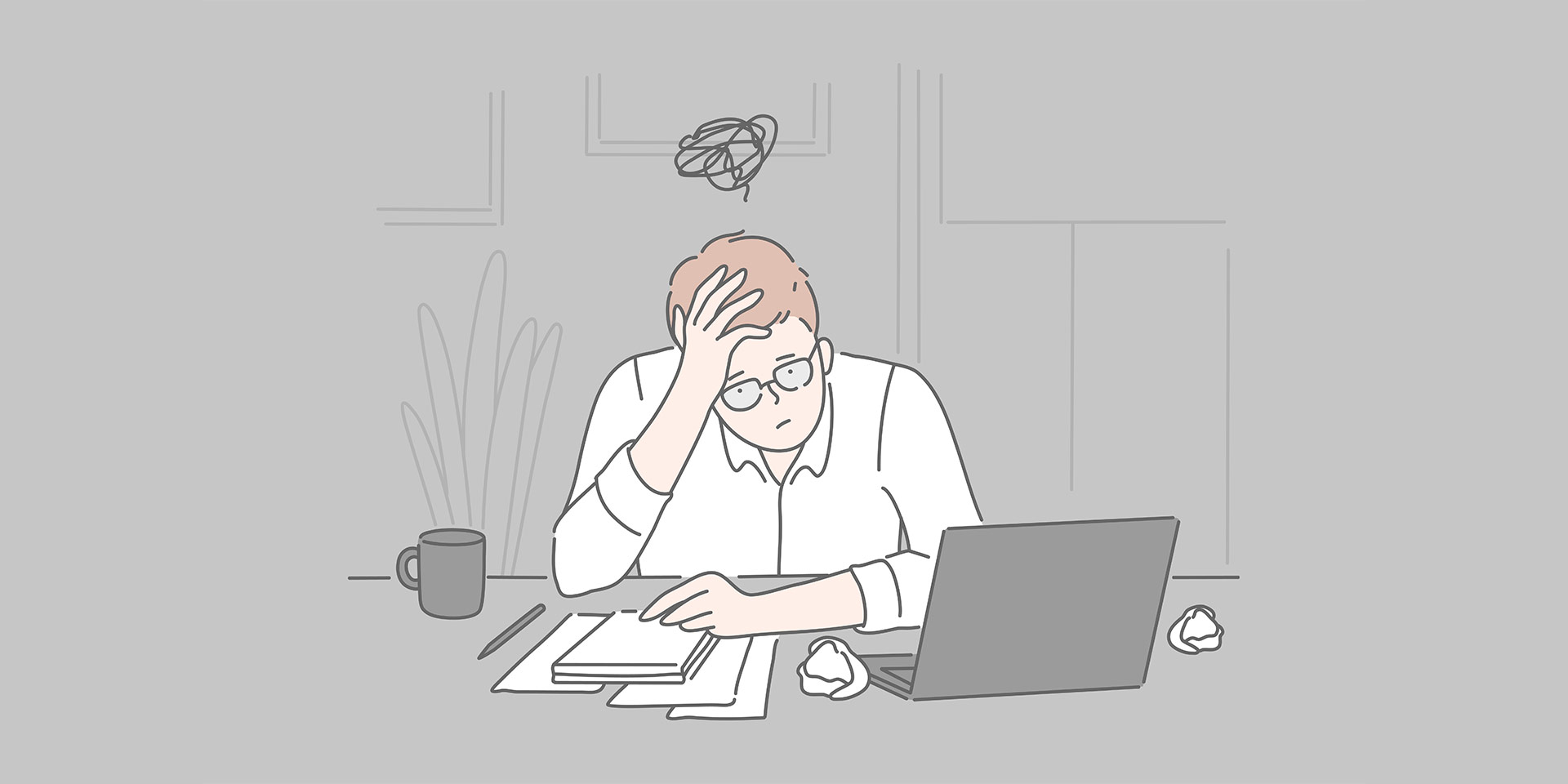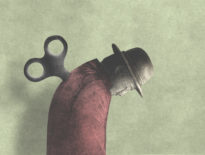Few books about management can be read with as much pleasure as a novel, because few are as pleasantly written. Donald Keough’s book[1] falls within this exclusive bracket. It is a book about business management and, strangely, was written for people who want to fail in this field, but do not know how.
Keough’s secret recipe can be applied to a range of contexts, from political failures to the failing management of an NGO (which should not necessarily be a business, although life is stubbornly proving otherwise). Why do I claim Keough’s book is well written?
Firstly, it is filled with healthy humour from beginning to end. The book is serious in places, but in many passages one has the impression of reading Jerome K. Jerome and not a book that thoroughly examines how to fail in business.
Secondly, it is a short book of only around 200 pages. Its shortness encourages you to read it, even if it teaches you about something that is not very appreciated by society—failure. Because of its size, Anna Karenina may scare many of its potential readers away (although some will argue that the story itself does that, but in much more convoluted ways).
And thirdly, as one would expect from a book about management (though not all management books meet this expectation), it is very well organized. There are 10 simple rules. If you follow them, failure is almost certainly guaranteed. And after you finish reading the tenth rule, you will have the pleasure of finding that the author offers you a ten percent bonus—another rule, absolutely free.
Of course, there are bonuses in this world that are higher than ten percent, but Coca-Cola prefers to invest more in bright ads with happy Santa Clauses than in fifty percent discounts. In case you didn’t already know, Keough was president and CEO of Coca-Cola from 1981 to 1993.
From now on I should have it easy, because I will simply quote Keough’s rules for a successful failure, and some of the things I found memorable in his book. We’ll begin with the first rule:
1. Quit taking risks!
“After the agricultural revolution allowed people to settle down, most of them did so. People chose to live as their fathers and mothers and their grandfathers and grandmothers before them had lived, never venturing far from the village. And with good reason. It was a dangerous world out there.
Just look at the old maritime maps with their ominous areas labelled ‘terra incognita’—territory unknown—sometimes embellished with even more threatening warnings, such as ‘Here be dragons.’ Who would want to take a risk sailing into such places? A few did, of course. But most people stayed home. Many things could happen to you if you took a risk, and most of them were probably bad.”
In passing, it is worth mentioning that Keough points out that “In 1900, American families spent nearly twice as much on funerals as they did on medicine.” It is a pity he does not also calculate their current expenditures on medicine and funerals. In any case, he’s probably right that this is a good thing, as long as swallowing medicine means you are still alive and you can take more risks.
The same chapter contains interesting stories about the Xerox company. The best part of the story tells of Chester Carlson, a nearly unknown inventor in Queens, trying to convince someone that the idea of ”electrophotographic” copying was worth being commercially exploited. And how did people, over 20 years and at more than 20 different companies, answer him? ”Carbon paper is just as good. Why would we complicate this with a big and expensive machine?”
2. Be inflexible
“For this is the tragedy of man—circumstances change, but he doesn’t.” (Machiavelli)
In this rule, Keough dips into the history of IBM. This company has become well-known for its refusal to accept that the future of computers was democratic, and that they would develop according to a different framework than the one IBM management had imagined:
“Through the 1980s, I would from time to time mention that I was seeing more and more PCs in various offices of The Coca-Cola Company, and invariably I was met with a polite smile and a shrug. It was like IBM management was standing on the bank of a river. No matter how long you stand there, you never see the same river twice—it is in constant motion. History is downstream—the future is upstream, where opportunity and danger may be on their way. But the reality was that the executives at IBM were too busy looking downstream, happily watching those beautiful, profitable mainframes floating down the river and around the world.
The final curtain on this little business history episode is that the ThinkPad, IBM’s PC, ended up in the laptop factories of China under the brand name Lenovo.”
3. Isolate yourself
“Of course, if you want to be isolated, don’t do this. It’s a complete waste of time. People invariably burden you with some detail of the daily business that you’re better off not knowing. Like their names. Don’t bother learning the names of employees. They might leave, and then you’ve wasted all that effort. (I read once of an eccentric upper-class British matron who never bothered to learn the servants’ names. Down through several changes of butlers, she simply called each new one ‘Butler.’ The maid, ‘Maid.’ Gardener, ‘Gardener.’ She would have made an excellent, isolated CEO.)”
You don’t need to be a genius to get the idea of what Keough is implying here. However, there are many aspects and case studies in this chapter that are worth reading. And if you follow the rule, you can join the queue for a well-deserved failure.
4. Claim your infallibility
The chapter about infallibility is one of the shortest chapters. This is probably because it is clear as day that “…if you want to fail, pose as an infallible leader.” Simple. Let’s move on to the next rule.
5. Play the game close to the foul line
I think that the news (political or otherwise) exemplifies the content of this rule more than enough. In fact, it seems to me that this rule is practiced by homo sapiens so systematically that it would seem that only some people, suffering from some serious genetic disease, only play their game within the given parameters. Everyone else possesses—somewhere on chromosome no. 2 (or 5, or 8, or whatever number)—a gene for cheating.
6. Don’t take time to think
Here is a short extract that I thought was noteworthy: “In fact, it’s been said that we live in the information age. That’s not true. We live in the data age. Data are coming to us endlessly, 24/7. More and more data coming at us, faster and faster, from all sides.” We receive huge volumes of data, but we no longer have time to critically examine them and turn these data into information that makes sense to us.
“According to a study in 2006 the average corporate worker has to deal with 133 e-mails every day. Not only that, they deal with multiple communications—a fax here, a text message there—attend a meeting here and teleconference with another meeting there—watch a PowerPoint presentation here, watch a video report there. Phones ringing on the desk and vibrating in the pocket.” (Does this sound familiar to you? Any resemblance to reality is purely coincidental).
Another passage that deserves reflection: “I believe in research, but I don’t expect the research to give me much more than a glimmer, an imperfect snapshot, of a moment in time. Bell-shaped curves won’t really tell me how to design a vision for the future. Surveys won’t reveal how the dreams of tomorrow should be shaped.
“A Fortune magazine article sometime back reported that Microsoft chairman Bill Gates has three monitors on his desk, synchronized so that he can drag items from one to another. One screen displays e-mail. The second screen shows the particular message that he is writing at that moment. The third screen is for a browser so he can search various sites.
“Bill Gates is a pioneer of electronic communication. He is a genius, and especially a genius in the field of handling data. No one can measure the positive impact he has had on our global society. He has brought us closer together—just a click away.
“But for many of us mere mortals, however, ICTs, far from freeing up time to actually focus on and think about what we are doing, have frequently compressed time to stressful levels. The Dutch sociologist Ida Sabelis uses the word ‘decompress’, which is what divers have to do when they surface after very deep dives. After we dive deeply into all kinds of data, we definitely need time to decompress, to sit back and think deeply about the issues before us.
“It’s said, ‘You can never have too much data.’ But instinctively, you and I know that simply is not true. If you have ever been pulled up short in the toothpaste department of your local drugstore, you know the problem: Colgate alone has fifteen or sixteen different varieties, all, apparently, providing some slightly different type of teeth cleaning, teeth whitening, and cavity prevention. That’s just too much data to process.
“Even more daunting, consider the process of buying something a bit technical, such as a new phone or a TV set. The choices are wonderful and totally mind boggling—for some of us, anyway.
“Do you want a phone that takes pictures, stores music, surfs the Internet, sends and receives text messages, or displays the latest soap opera? All you need to know is there. Just go to any one of thousands of Web sites or talk to the friendly technologists at one of the many electronics retailers. There’s so much to know, it can be difficult. (Smart salespeople know this, so they quickly try to narrow down your selection. Show me a dozen ties and I’m confused. Show me three and I usually pick the blue one.)
“In the early 1970s a psychologist gave horse-racing handicappers varying amounts of information on various horses—past racing records, the weight they carried, breeding, and so on. Interestingly, the handicappers did worse on their predictions when they had forty pieces of information than when they had only five. It’s true that in many, many situations less is more!
“A global network of everything connected to everything already exists. Machines are constantly talking to machines. Groups are connected to groups, all sharing data. To be productive, however, the whole vast array needs structure. A business network may not have some kind of tangible structure, like a building, but at some point there must be some kind of guidance to keep the flow going in the right direction, toward the right goals.
“Someone or some few people must actually apply wisdom and thought about the direction and goals. Someone must have a vision of the future. The data alone do not get you there. In fact the data are often conflicting because a group consensus is altogether different from an individual decision. In a national poll people will happily say they want a more energy-efficient house, yet they will just as happily go out and build one three times the size they have now.
“I believe in research, but I don’t expect the research to give me much more than a glimmer, an imperfect snapshot, of a moment in time. Bell-shaped curves won’t really tell me how to design a vision for the future. Surveys won’t reveal how the dreams of tomorrow should be shaped because nobody knows. If the builders of early automobiles had asked people what they wanted in transportation, the probable answer would have been, ‘Faster horses.’ The moral would be that you do not have to find out the future from consumers, customers or the public. You build the future.”
Here is a humorous passage: “‘It ain’t so much the things we know that get us into trouble. It’s the things we know that just ain’t so.’ Mark Twain. (Some know it was not Mark Twain who said this. It was Artemus Ward, Ralph Waldo Emerson, or Will Rogers. I know, for a fact, that it was none of these. It was my uncle Vern. I know. I was there when he said it).
“If you still are determined to fail, however, it’s imperative that you don’t take time to think. Or, and this is really seductive, you can actually avoid almost all responsibility by getting someone else to do your thinking for you.” This brings us to…
7. Rely totally on research and experts to make decisions for you
“In the 1980s, external experts advised Coca-Cola to change its manufacturing formula, which led to the launch of the unfortunate “New Coke” in 1985. The public was indignant, and thousands of letters were sent to the company’s management:
“One letter was from a lawyer in Idaho addressed to Roberto and me: ‘Gentlemen, will the two of you please autograph the bottom of this letter because it will soon be worth a fortune. It will bear the names of the two dumbest executives in American business history.’ A letter like that is good for one’s humility curve.”
It is well worth reading this chapter. It will not be a waste, not even of time.
8. Love your bureaucracy
Anyone who has been the victim of this ‘god’ of modern societies cannot help but love this chapter, and cannot dispute the effectiveness of the rule. By reading it you will at least experience the satisfaction of knowing that you are not the only one who does not understand the purpose of many bureaucratic rituals (even if they are a necessary evil that originally made sense).
“Here’s how it works: You put a manager in place and within eighteen months he or she has an assistant. The assistant becomes a junior manager and guess what? Another assistant. The beat goes on.
“There are layers upon layers of people, yet when a customer calls, nobody’s home. They are all in meetings. These meetings generate more paperwork, more e-mails, more calls, more meetings. In fact, most often there are even meetings to plan meetings. Meetings are the religious services of a great bureaucracy and the bureaucrats are fervently religious.”
9. Send confusing messages
This chapter did not seem to me to be one of the most successful, but I have kept two quotes from it that will suffice to save it from a destructive critique: “The problem with communication is the illusion that it has been accomplished.” (GB Shaw). “There are many things in life more important than money, and they all cost money.” (Fred Allen)
10. Fear the future
It is sad that many will not read this book, and especially this chapter. Even if they do, they are not sure to change the opinions that sabotage them. There seems to be a masochistic pleasure homo sapiens takes in making gloomy predictions and seeing all sorts of threats to our happiness and well-being. And no matter how many apocalyptic dangers we escape, the “pessimism industry” remains active and prosperous.
“I’ve lived through the projected end of the world from global freezing in the 1970s, the near end of the world from Chernobyl in the 1980s, the even nearer end of the world from Y2K at the turn of the century, death from alar on our apples, cancer from our power lines, cancer from our cell phones, cancer from our food colouring, and cancer from the cyclamates in the diet soft drink TAB.
“The news business has never been about good news. It’s the bad stuff that makes people sit up and take notice. And that makes perfect sense. Millions of cars safely negotiating a daily commute is a nice piece of information. But ten cars in a massive pileup is news!”
11. Lose your passion for work—for life (bonus)
This is a good rule for failure, which many already know all too well. Many people are somehow oblivious of the idea of having too much passion for work. Many work, some even work a lot, but those who put passion into their work are in the minority. In fact, many do not even put passion into their lives. They do not live life, they merely exist. They have no dream that drags them mercilessly towards itself, no inner thirst that pushes them towards the heart of life, towards knowledge, and towards searching for more.
I am disappointed and puzzled to see that, many times, more than half of my students are not even curious enough to look through the microscope and find a part of the world that they have never seen before—unless I insist on them doing it. The thirst for knowledge seems to have waned since the Renaissance.
“If you really want to fail, lose that passion for whatever it is you’re doing. Get that spring out of your step. Say to yourself, ‘That’s good enough.’ Or ‘That’s not my job.’ Or ‘I don’t care.’ Or ‘I’m retiring soon anyway.’
“We all know people who have done this. They are the grey-faced automatons found in every workplace—the people who seem to stew in their own misery, cursing the darkness rather than lighting a candle.”
If you don’t want to fail, I’ll tell you a secret you probably wouldn’t have found out otherwise: read the rules and do the exact opposite. Dare to take risks, accept that you can be wrong, put your passion to work, and instead of cursing the darkness, light a candle. You will miss the world of beautiful failure, but who knows? You may feel good at the end of the day.
Robert Ancuceanu, PhD, is a professor in the Faculty of Pharmacy at the Carol Davila University of Medicine and Pharmacy in Bucharest, Romania.



















